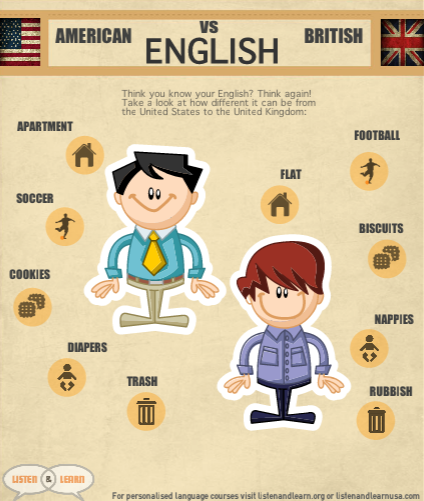Strange…or Accurate? An American’s Take on British English
Table of Contents
Speaking and understanding English is a complicated thing, whether it’s your mother tongue or an adopted language. From Great Britain to the United States and Australia to Scotland, English is spoken around the world as a primary and as a second language for many people looking to advance personally or professionally. Furthermore, the British are known for being what Americans might call overly formal or too uptight in some circumstances, adding to the communicative differences between us.
Many Americans agree that British English can be quite charming. From our perspective, it might sound a little old fashioned, and other times the pronunciation or accent alone is enough to garner a smile. Beyond the simple differences in language, the British choose their words differently than Americans. Let’s take a look at some British uses of the English language that Americans find amusing, perplexing, or flat-out wrong:
A vocabulary of their own.
In the United States, a young professional takes the elevator to her 7th floor apartment, uses the toilet and washes up, then cooks up some sausage, eggplant, and homemade French fries for dinner.
In England, a woman in exactly same scenario would ride the lift to her flat, go to the loo, then prepare bangers, aubergine, and chips for dinner! Here’s a peek at some other common words with completely different names in England and the U.S.:
Cooker = stove
Crisps = chips
Biscuits = cookies
Footie or Football = soccer
Flyover = an overpass (on the highway)
Fringe = bangs
Full stop = period (punctuation)
Hire = rent
Jumper = sweater
Nappy = diaper
Rubbish = trash
Snog = kiss
Expressions may not mean what you think they mean.
Not only do the British have their own unique vocabulary, but they also have a whole host of expressions used as part of their everyday lingo. Here are a few sayings you’re unlikely to ever hear stateside yet simply must know if you plan on staying in England for an extended period of time:
That was a right cock up = They really screwed something up
I’m really knackered = I’m tired out
I really fancy that actor = I really like that actor (romantically!)
I could do with a good nosh up = I could go for a good meal!
Agreement in the name of avoiding confrontation.
Some would say that the British will do nearly anything to avoid confrontation or a heated dispute. In order to keep situations like this at bay, they’ve earned a reputation for hiding their truly feelings on matters and making general, peace-keeping statements instead. A humorous article over at The Telegraph, published in the U.K., sheds light on the topic. Here are a few excerpts:
I hear what you say = I disagree and do not want to discuss it further
You must come for dinner = It’s not an invitation; I’m just being polite
I was a bit disappointed = I was annoyed
Should we consider some other options? = I don’t like your idea
Too serious, too vulgar, too critical…boy, first impressions are hard.
As outlined in this informative post at BBC America, British people have their own way of acting that may seem offensive to Americans, especially on American soil. Many Americans have an over-sized personality and might find British visitors to be particularly serious or dry. On the other hand, many people here wouldn’t swear or use toilet humor in public settings, while the British generally seem less reluctant to hold back. Americans tend to be somewhat emotional and sentimental, taking offense to name-calling more so than our British counterparts.
Of course, it’s impossible to sum up the differences between American and British English and the behaviors of those who speak the two versions of the language. The only real way to understand linguistic differences beyond those we can study in a classroom, such as unique vocabulary items like those above and spelling differences like the American “color” versus the British “colour,” is to live in both countries and make your own personal observations. If you don’t have the luxury of moving abroad, remember that you can always perfect your English skills with private instruction–whether you want to sound like a Brit or an American, the choice is up to you!



